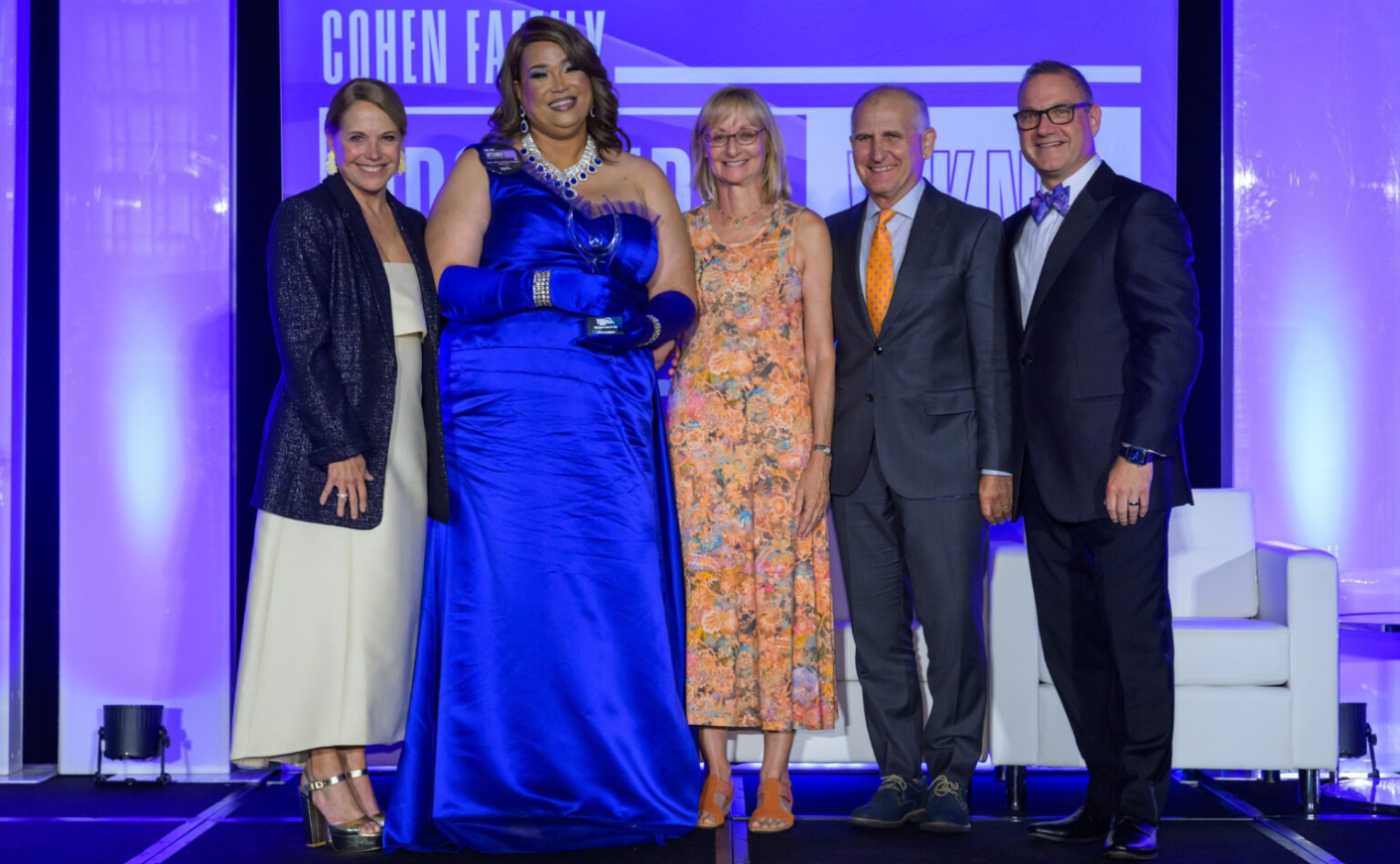Sometimes you get to take part in an event that restores your faith in humanity…at, of all things, a gala event for the Nancy & David Wolf Holocaust & Humanity Center in Cincinnati, Ohio.
The museum tells the important and poignant history of the Holocaust — and while it tells the story of what happened to 6 million Jews and other victims, it is ultimately an exhibit about hope, resilience, and the power each of us has to make a difference as upstanders. I came to Cincinnati for the 2023 Upstander Awards, which was part of an entire weekend celebrating and uplifting changemakers in the Queen City.
Rooted in an educational mission is the Center’s vision to create an entire community of upstanders—high-minded, everyday heroes who act because they refuse to be bystanders to the world’s humanitarian injustices. The Nancy & David Wolf Holocaust & Humanity Center is the only Holocaust museum in the U.S. with a positive, authentic connection to its site.
The terminal is the very place where thousands of local Holocaust survivors arrived by train from war-torn Europe to rebuild their lives. Since its opening in 1933, Union Terminal has had a long and storied history, from welcoming soldiers home from World War II to becoming the home of Cincinnati Museum Center and the Nancy & David Wolf Holocaust & Humanity Center.
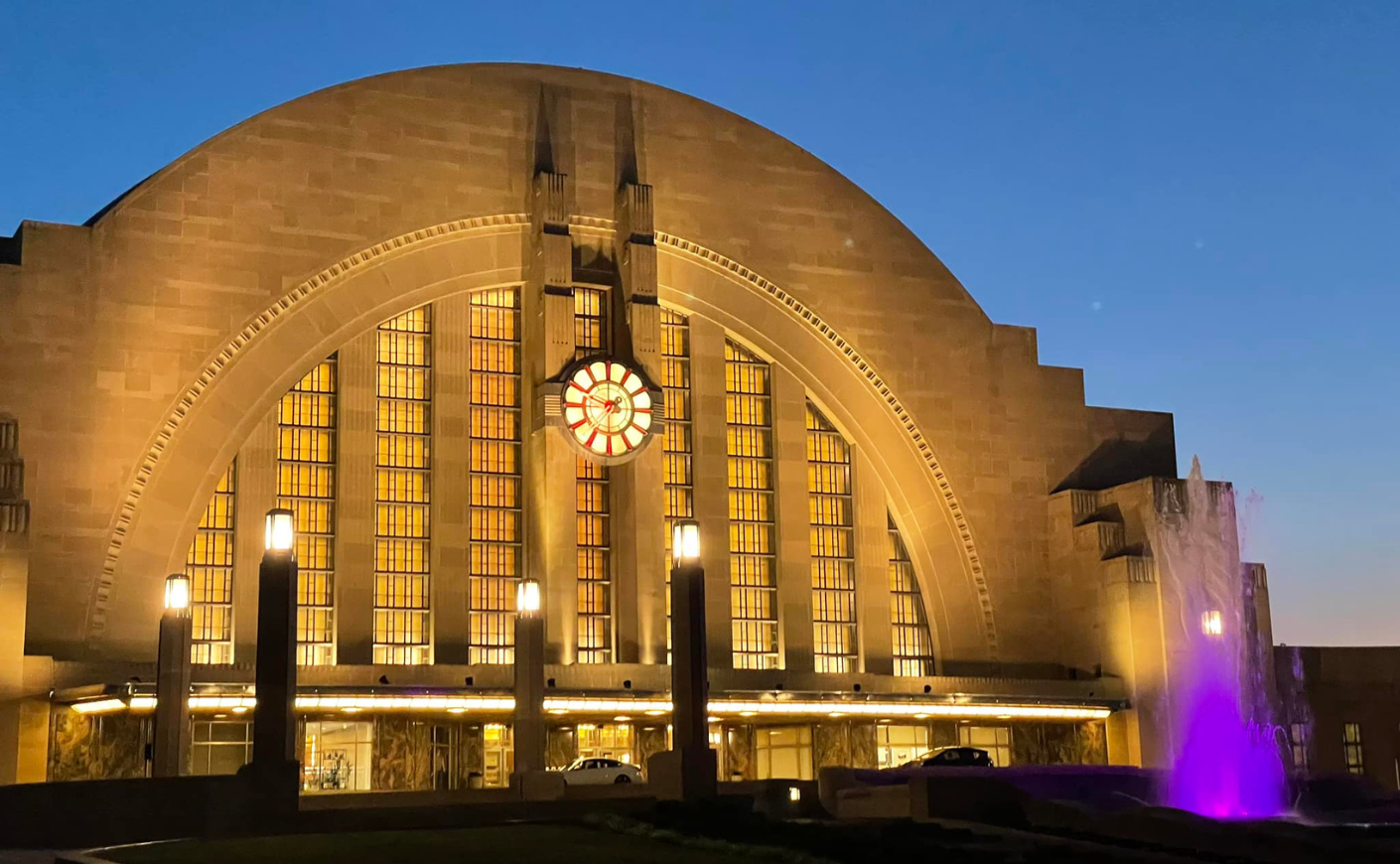
The dichotomy is not lost on anyone who recognizes the fact that so many Jews were loaded onto trains and sent to their deaths in labor or concentration camps. I met several survivors who have made it their mission to tell the stories of their experiences.
During dinner, I met 82-year-old Holocaust survivor Zahava Rendler. Born near the start of the war in Poland, Zahava went into hiding as an infant in an underground bunker with her family and was given sleeping pills to prevent her from crying. Her parents decided it was too dangerous and sent her to live with a Polish woman. The woman, fearing she would be discovered, placed Zahava in a convent, where she survived and was later found by her father. After emigrating to the U.S. from Israel as an adult, Zahava has dedicated her life to teaching children and speaking about her family’s experiences during the Holocaust.
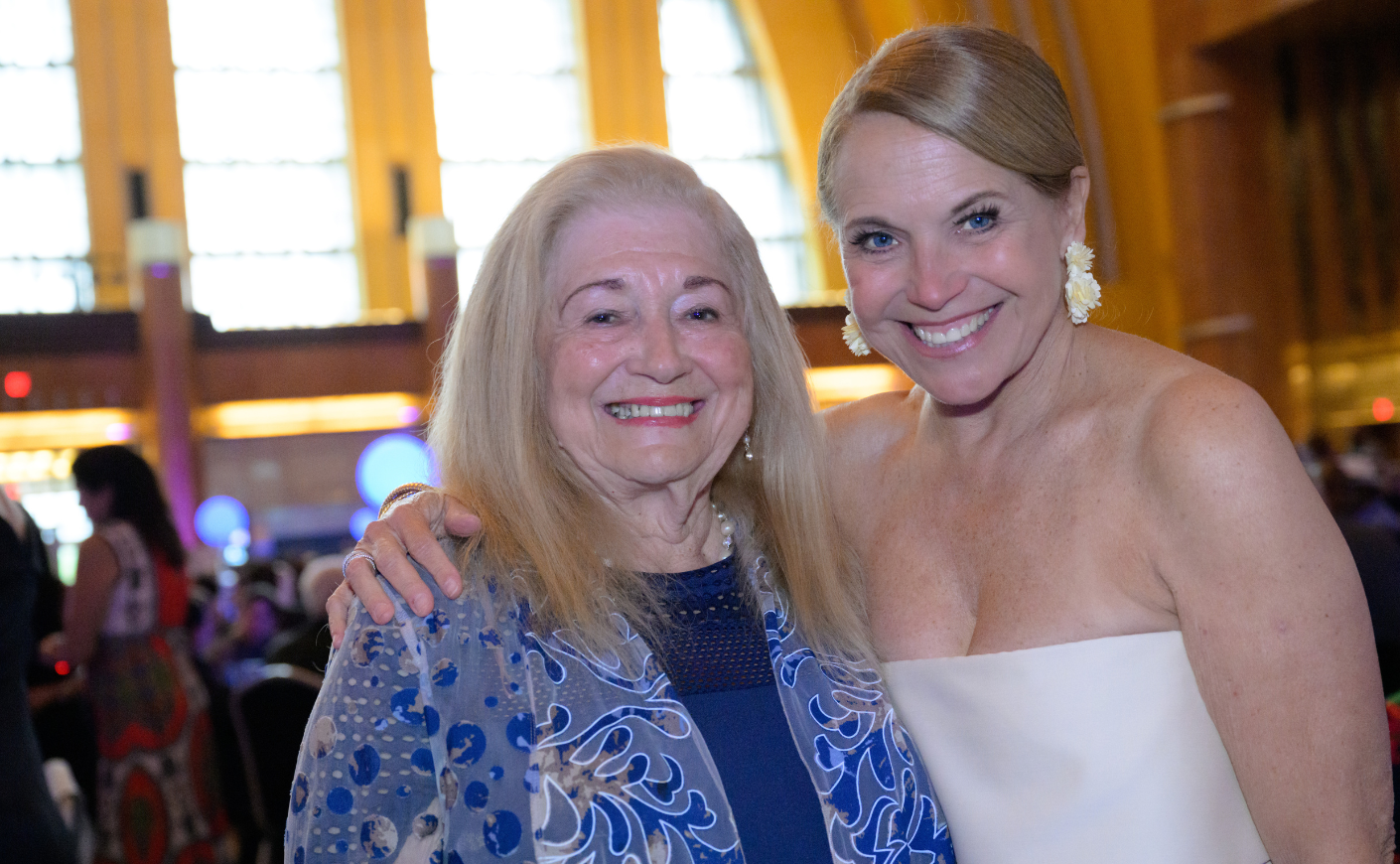
I also had the pleasure of speaking with another survivor, Henry Fenichel, who was born in The Netherlands in 1938. Shortly after the Nazi rise to power, Henry’s parents sent a request for their relocation to Palestine, where his father’s family resided. After Henry’s father was deported and murdered by the Nazis in Auschwitz, Henry and his mother still had no response to their request to immigrate. They then went into hiding.
When Henry was four years old, he and his mother’s hiding place was discovered, and they were transported to the Westerbork transit camp and later to Bergen-Belsen concentration camp. Through a miraculous series of events, Henry’s mother was able to get them on the list for “Transport 222,” when a group of Jewish prisoners was sent by train to Palestine in exchange for a group of German nationals who had been held as internees in Palestine. In June 1944, Henry, his mother, and 220 other Dutch individuals left Bergen-Belsen, eventually arriving to freedom in British Mandate Palestine.
Henry just finished recording his testimony for the groundbreaking artificial intelligence exhibit, Dimensions in Testimony. Using specialized recording and display technologies and next-generation natural language processing, Dimensions in Testimony allows visitors to ask questions to two-dimensional displays of Holocaust survivors and receive responses in real-time. The exhibit will allow museum-goers to converse with these Holocaust survivors long after they are no longer with us.
While this was a gala to support the museum's paramount mission to ensure the lessons of the Holocaust inspire action today, it was also a chance to honor some community members of Cincinnati who embody what it means to be an upstander, a word coined by the former U.S. Ambassador to the United Nations Samantha Power. She said, “We decide on issues large and small whether we will be bystanders or upstanders.”
Early on in the program, I was delighted to talk with Cincinnati Museum Center CEO & President Elizabeth Pierce and Jackie Congedo, the Center’s Chief Community Engagement & External Affairs Officer, about my own journey with breast cancer, my cancer advocacy, and the upstanders who inspire me with their transformative work.
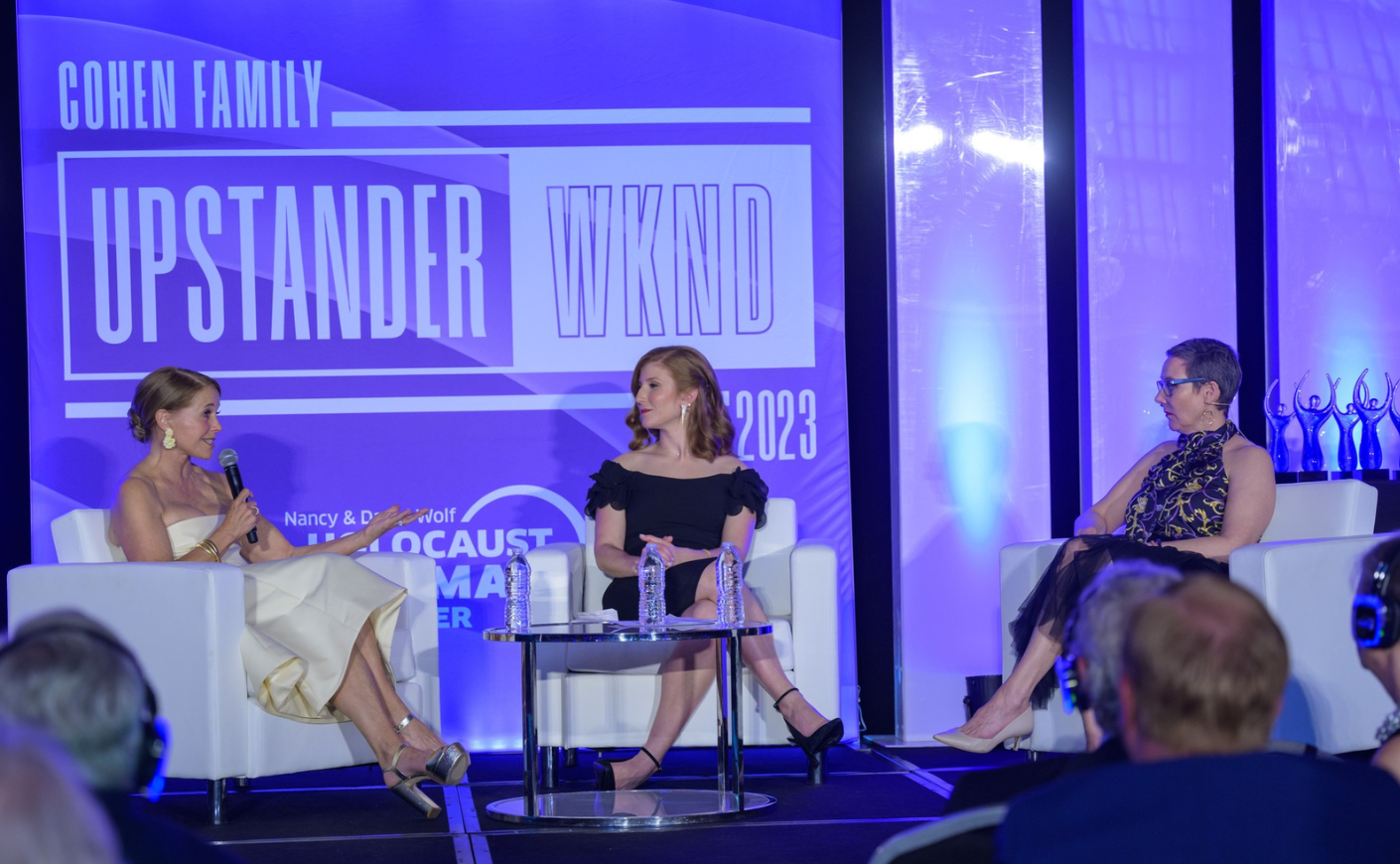
These everyday Americans are using their character strengths to make a difference with acts of bravery, kindness, and generosity. It was an honor to present these awards, all named after local Holocaust survivors and upstanders who showed tremendous courage during one of the darkest chapters in human history. Here are some of their stories.
LeTecia Cunningham fights for every homeless person
Winner of The Edith Carter Award for Love
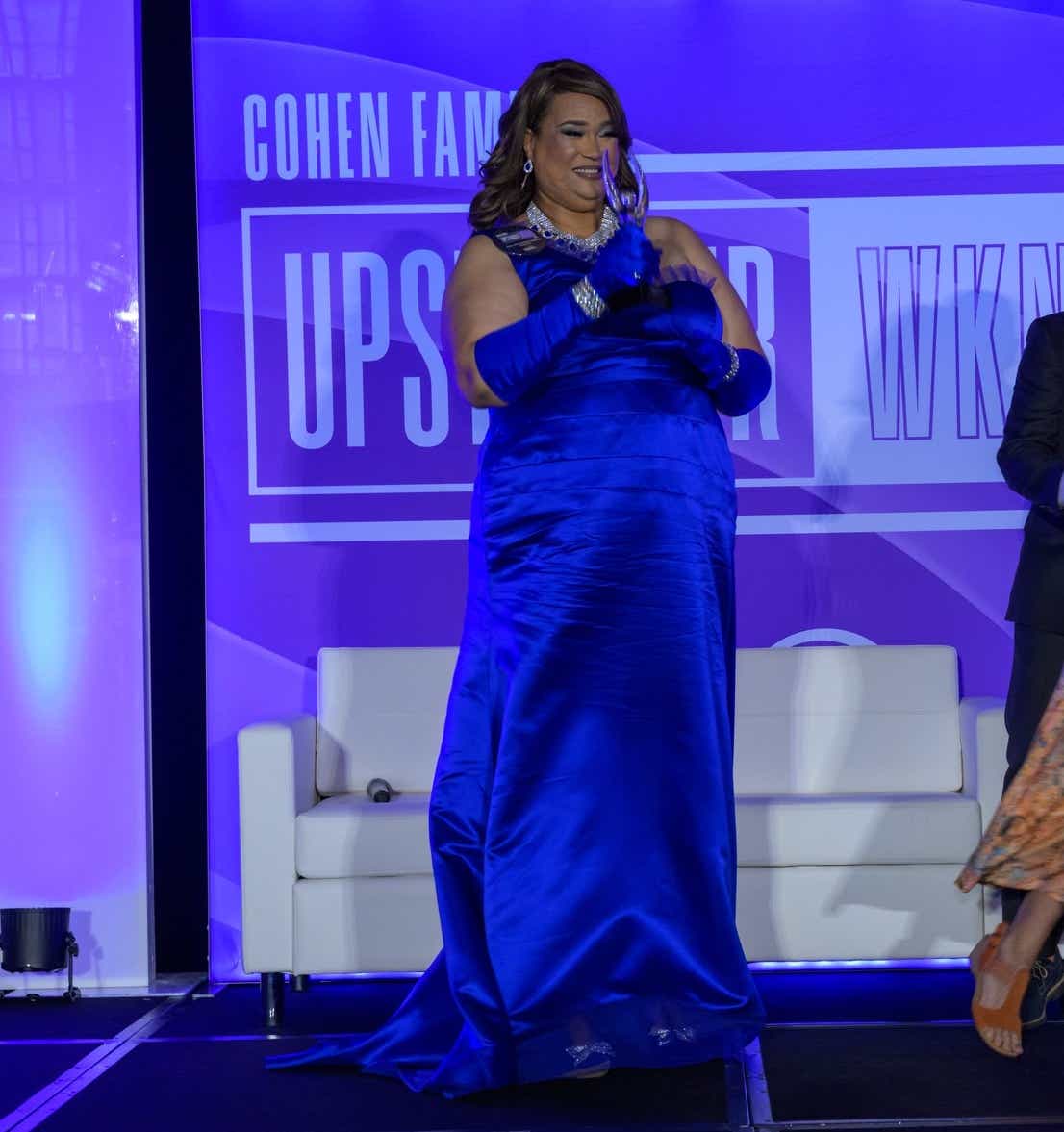
Edith Carter was a Holocaust survivor from Czechoslovakia. In her testimony, she reflected on the relationships she built with other women in the concentration camps. Edith and six of these women escaped a Nazi death march out of Auschwitz together. The last thing you see before you leave the museum downstairs is a quote by Edith, blown in glass by local artist, Darren Goodman, who was moved after hearing Edith share her story. “Everybody, every human being has the obligation to contribute somehow to this world,” she said.
Winning the award that recognizes her abundance of love, LeTecia Cunningham, affectionately known as “Momma T,” walks the streets of Cincinnati giving out sandwiches, hygiene products, and blankets to the homeless community. As an emergency shelter case manager, she has been one of the fiercest advocates for the homeless community for more than 20 years. Having experienced homelessness as a teen and young adult, LeTecia once said, “Some people see homeless begging for money; I see someone who may need clothes, employment, and transportation. Others see homeless people lying on the park benches, I see someone who doesn’t have shoes and may need medical attention for the blisters on their feet. Compassion allows me to see the story that lies beyond the cover.”
LeTecia was nominated by several people she’s helped, who used public computers at the library to submit her nomination.
Mason Bailey proves his disability won’t hold him back
Winner of The Al Miller Award for Gratitude
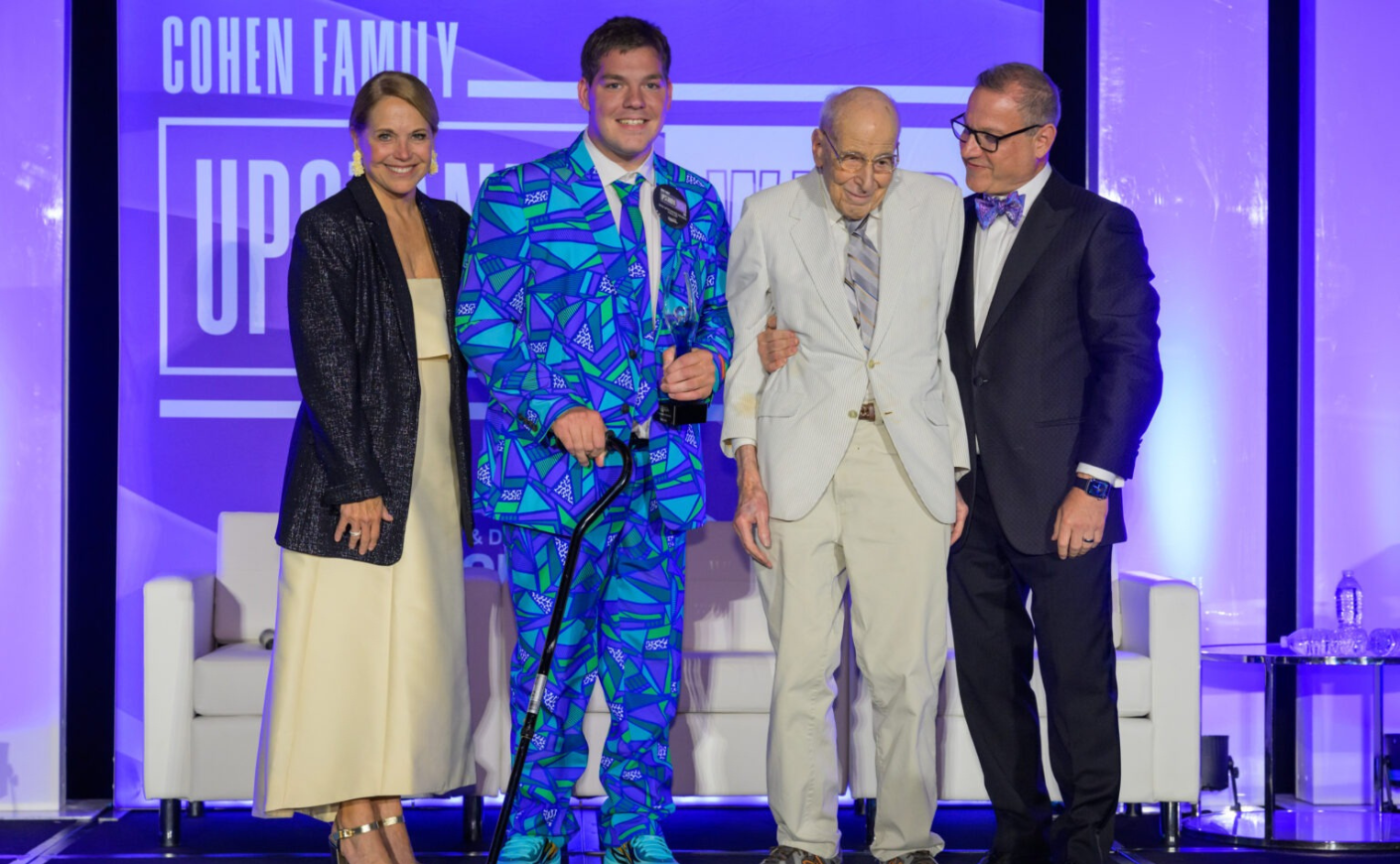
Al Miller was born in Germany, but at only 15 years old, as things got worse for German Jews, he left for Switzerland. He and his family were able to immigrate to the United States years later. Al joined the U.S. Army and became a Ritchie Boy — one of less than 2,000 German Jewish soldiers trained at Camp Ritchie and later sent to Germany to interrogate suspected Nazi war criminals.
Winning the Al Miller Award for Gratitude, Mason Bailey had always dreamed of learning to drive and operate heavy equipment, despite having cerebral palsy. He encountered naysayers who couldn’t see past his disability but has continuously proven them wrong — including by earning his heavy equipment operator license. When Mason had a hard time finding someone who would hire him, he decided to start his own seasonal lawn care business.
“I am grateful to work hard to make things happen,” he said. “I am grateful for people who have helped and supported me through life, school, and challenges. I use my gratitude to be positive, to inspire others to try, to do better, and know that anything is possible. I don’t feel sorry for myself because of my disability. Life is hard and can be challenging but we all have things to be grateful for, and we need to focus on that to make the world a better and brighter place.”
Kayelin Tiggs advocates for menstrual equity in Ohio prisons
Winner of The Jim Tojo Award for Leadership
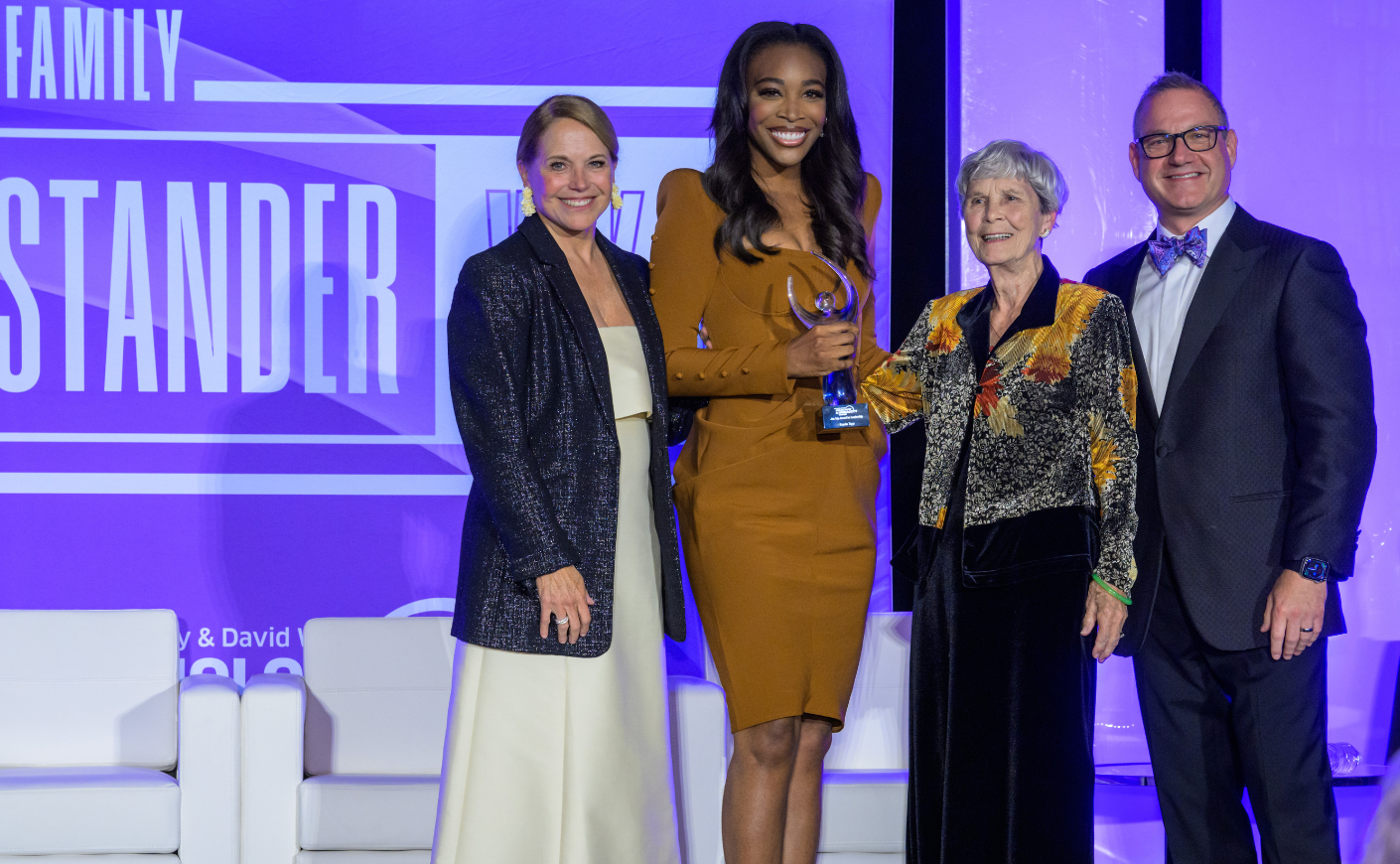
Jim Tojo was 15 years old when he and his family were forcibly removed from their home and placed in an internment camp in Wyoming. At 18, he registered for the Selective Service, but he was classified as an Enemy Alien on his draft card. He bravely went to the draft board and protested. He later was reclassified and served as a military intelligence service officer in the U.S. Army. After the war, he joined his family in Cincinnati. Despite the unfair treatment, he forgave his country and ultimately became a widely respected surgeon, rising in leadership as fire department surgeon and medical director for the City of Cincinnati for decades.
Winning the Jim Tojo Award for Leadership, Kayelin Tiggs has been working to achieve menstrual equity for incarcerated women in the state of Ohio. Because of her efforts, the Ohio Department of Rehabilitation and Corrections implemented a policy that provides menstrual hygiene products across all state prisons. Kayelin has also empowered the women who are incarcerated to advocate on their own behalf, helping them to organize their efforts.
When asked what motivates her, Kayelin said, “These women are asserting their humanity and fighting for their dignity on a continuous basis. After listening to their stories, I learned that if there’s inequality then something needs to be done, and it can be done by me.”
Imran Malik shows faith can bring us together
Winner of The Michael A. Meyer Award for Spirituality
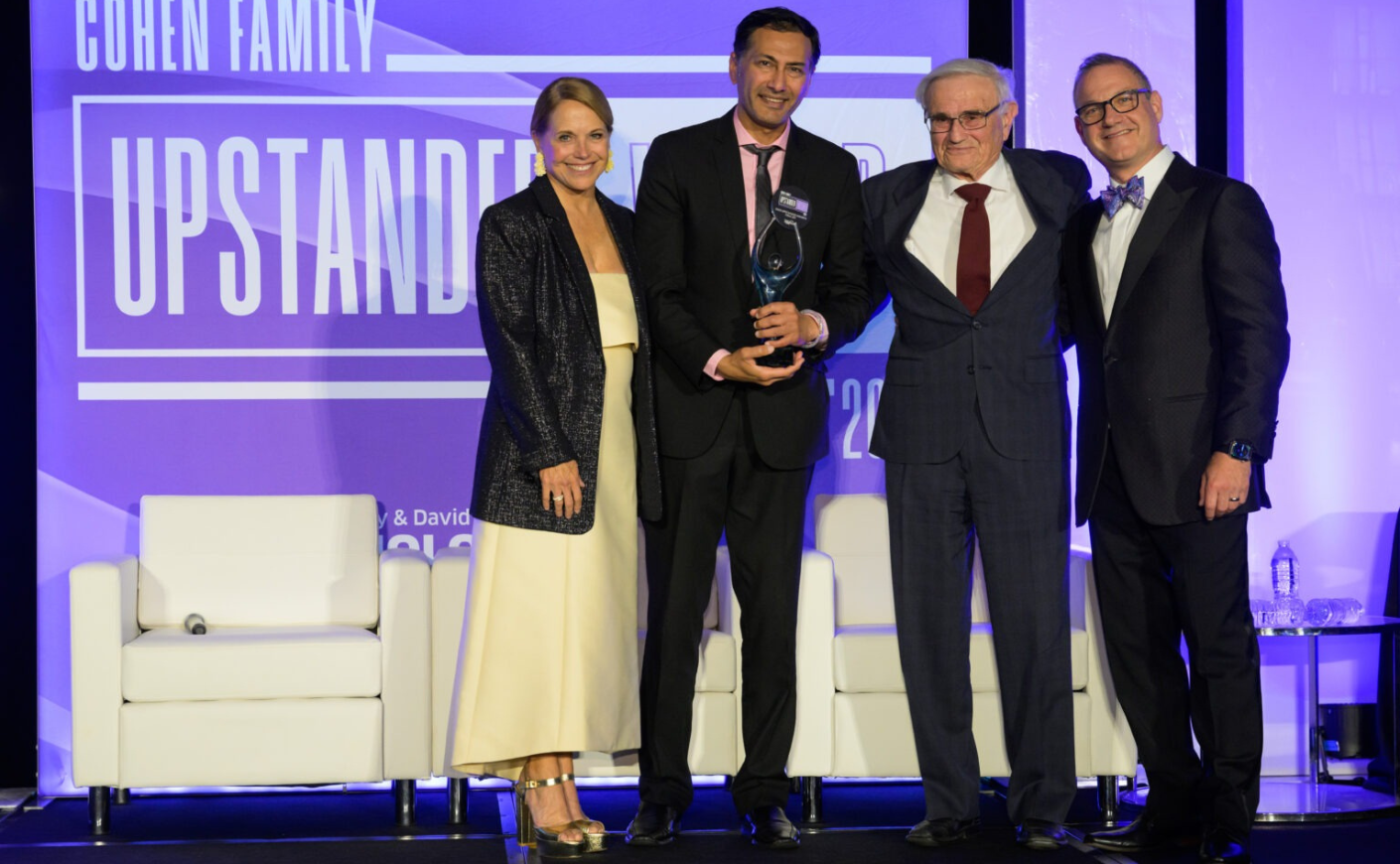
Dr. Michael A. Meyer was born in Berlin, Germany, in 1937. Living in Nazi Germany, his father’s law license was revoked, and he was called to forced labor as the family made arrangements to escape. In the spring of 1941, the family fled to Barcelona, where they waited several weeks for ship passage to the U.S. Michael grew up in Los Angeles, where he received his B.A. from UCLA and his doctorate is from Hebrew Union College in Cincinnati. Since then, he has been on the faculty of HUC’s Cincinnati campus, where he is currently the Adolph S. Ochs Professor of Jewish History Emeritus. He is a globally renowned teacher, speaker, and author who has served in many Jewish academic leadership roles across countries and continents. As Dr. Meyer has dedicated his life to scholarship around Jewish identity and religious history, it is fitting that the award for the strength of spirituality, which drives an individual’s search for and connection with their purpose, is named in his honor.
Spirituality is at the core of Imran Malik’s work. Born in Pakistan, Imran watched his mother shelter their neighbors during the Gulf War. An interfaith and outreach coordinator at the Noor Islamic Cultural Center in Hilliard, Ohio, Imran believes service and care for humanity is at the core of all belief systems, and that bringing people together is the way forward in an increasingly polarized world. After the Tree of Life synagogue shooting in Pittsburgh, Imran led a delegation of Muslim leaders in his community to stand in solidarity with the Jewish community.
Imran has pulled together practitioners of all faiths for common community goals and better understanding. “I grew up witnessing my parents living and breathing the essence of a saying of Prophet Muhammed — the best human being is the one who is beneficial to others,” Imran said. “It’s this fundamental spiritual prescription that has become my life’s conviction.”
The Upper Sandusky Library Team combats Neo-Nazism with education
Winners of The Roma and Sam Kaltman Award for Love of Learning
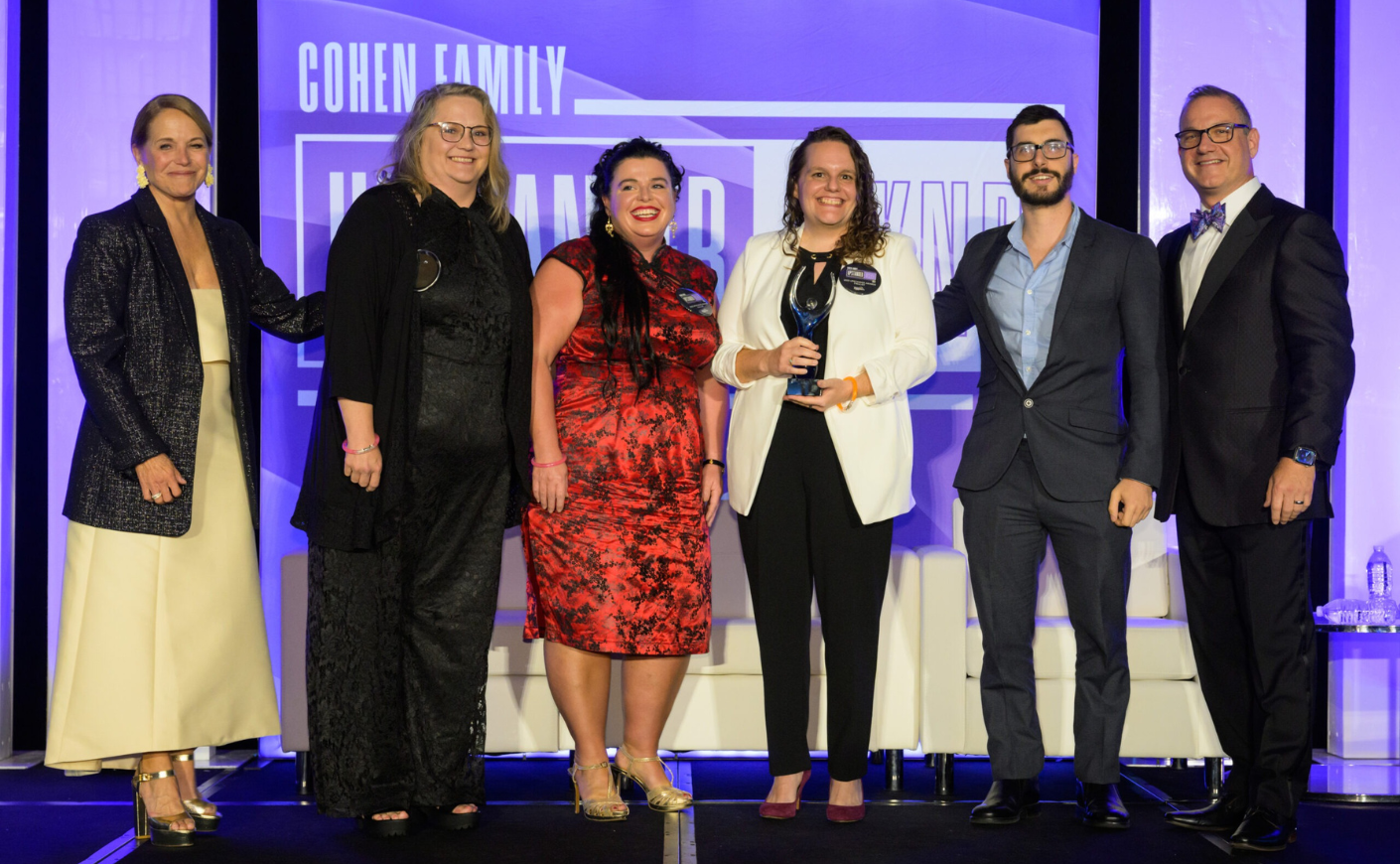
Roma and Sam Kaltman met in the Lodz Ghetto in Poland and bonded by trading books and sharing their love of reading. Both were deported to Auschwitz and ended up in other camps; Roma in Stutthof, Sam in Dachau. They were able to reunite after the war and married and immigrated to Cincinnati. Sam served as president of the Jewish Survivors from Nazism, the predecessor of the Holocaust & Humanity Center, where Roma served on the board until her death in 2012. The Center’s Kaltman Institute on Teaching the Holocaust was named in their honor. To date, the Roma & Sam Kaltman Institute on Teaching the Holocaust has equipped hundreds of educators with practical, classroom-based strategies for teaching the Holocaust.
Love of learning drives the work of the Upper Sandusky Library Team. When a homeschooling network in their hometown issued Nazi-approved curriculum, Krystal Smalley, Patti Davidson, and Rachel Keirns-Moore sprung into action, knowing the library could be an essential resource to the community. They searched for Holocaust educational resources and found the Nancy & David Wolf Holocaust & Humanity Center, which helped connect them with a Holocaust survivor to speak about his experiences.
The event started a movement to educate people about the Holocaust, and every day since, the library has received phone calls requesting recordings of Henry’s talk. All three women are firm believers in the role libraries play as educational centers and cornerstones of our democracy. “As a library and staff, we will continue to educate and speak up. We will always stand up against injustices,” they said.
To learn more about the Nancy & David Wolf Holocaust & Humanity Center’s digital programs, educational offerings, and award-winning museum at the iconic Union Terminal, visit holocaustandhumanity.org.







